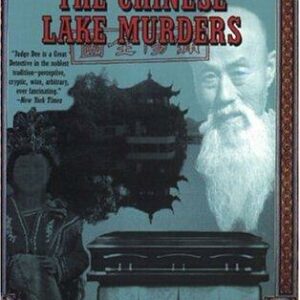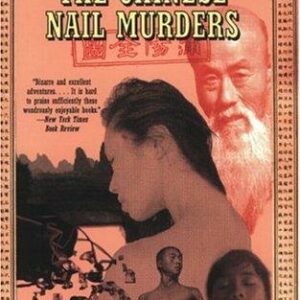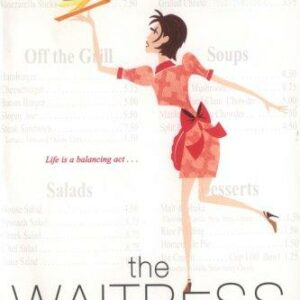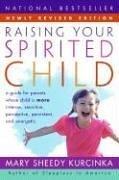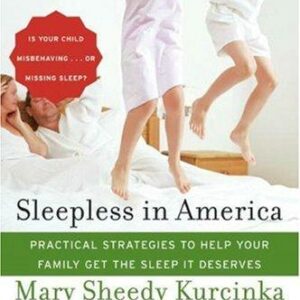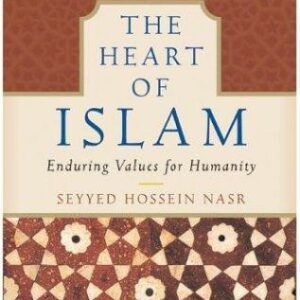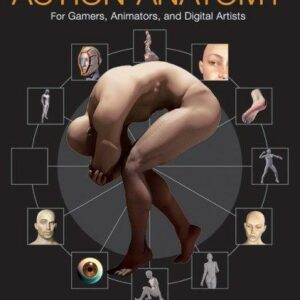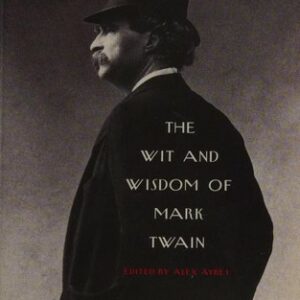Subtotal: $9.95
Red Azalea
$19.00
| Title | Range | Discount |
|---|---|---|
| Trade Discount | 5 + | 25% |
- Description
- Additional information
Description
Description
A revelatory and disturbing portrait of China, this is Anchee Min’s celebrated memoir of growing up in the last years of Mao’s China. As a child, Min was asked to publicly humiliate a teacher; at seventeen, she was sent to work at a labor collective. Forbidden to speak, dress, read, write, or love as she pleased, she found a lifeline in a secret love affair with another woman. Miraculously selected for the film version of one of Madame Mao’s political operas, Min’s life changed overnight. Then Chairman Mao suddenly died, taking with him an entire world. This national bestseller and New York Times Notable Book is exceptional for its candor, its poignancy, its courage, and for its prose which Newsweek calls “as delicate and evocative as a traditional Chinese brush painting.”
"[An] extraordinary story. . . . This memoir of sexual freedom is [both] a powerful political as well as literary statement."
—The New York Times Book Review
"The book sings. It is a small masterpiece. . . [No one] has written more honestly and poignantly than Anchee Min about the desert of solitude and human alienation at the center of the Chinese Communist revolution." —Vogue
"Gripping. . . .reads like raw testimony. . .epic drama, and. . .poetic incantation. . . . It was passion and despair that made [Min] fearless; it was fearlessness that made her a writer."
—The New York Times
"Stunning. . . . Min’s is a distinct and moving voice speaking out of a cauldron of history."
—Los Angeles Times Book Review
"Brave and heartbreaking."
—The Miami HeraldAnchee Min was born in Shanghai in 1957. At seventeen she was sent to a labor collective, where a talent scout for Madame Mao’s Shanghai Film Studio recruited her to work as a movie actress. She came to the United States in 1984 with the help of actress Joan Chen. Her memoir, Red Azalea, won the Carl Sandburg Literary Award in 1993 and was named a New York Times Notable Book in 1994. Other works from Min include Becoming Madame Mao, Empress Orchid, Katherine, and Wild Ginger“[An] extraordinary story. . . . This memoir of sexual freedom is [both] a powerful political as well as literary statement.” —The New York Times Book Review
We hope the introduction, discussion questions, suggestions for further reading, and author biography that follow enhance your group’s reading of the evocative and awe-inspiring Red Azalea.
1. How does Min’s family life shape her personality and affect her future? What does Min learn from her mother [see, for example, pp. 12–15, 124–6, and 190–2] and her father [see, for example, p. 11]?
2. What are Min’s obligations to her parents and siblings? How are these obligations and expectations affected by the Cultural Revolution?
3. Min writes of her early years in school, “To me, history meant how proletarians won over their reactionaries. Western history was a history of capitalist exploitation” [p. 25]. What are Min and her peers taught to feel about Chairman Mao? How do Min’s parents feel about Mao?
4. Min recalls yelling at her mother: “I said, I don’t want to inherit your life. It is a terrible, terrible and terrible life. I yelled at her. My mother went to take pills. I said, Don’t you see? Can’t you see it’s not working? Your philosophy does not work for me. My mother refused to give up. She said she didn’t believe that evilness should rule. I said, It’s ruling. She said, It’s impossible” [p. 233]. Does this exchange represent a typical intergenerational conflict, or is their conflict unique because of the unusual and strong control the Communist Party and the Cultural Revolution had on their lives? Can Min or her mother exercise any control over their own lives? What choices do they each make about their life vis-à-vis the Party?
5. Why does Min select the story of Big Beard to include in her memoir as a pivotal event from her childhood?
6. What does the story of Little Green illustrate about the Communist Party’s attitude toward women in China during the Cultural Revolution? How was Min’s life shaped by the Little Green episode? Does the Little Green episode recall shades of the Big Beard episode in its effect on Min?
7. How did Lu’s and Yan’s respective upbringings shape their personalities, and, ultimately, their destinies within the Party? How do Yan and Min each relate to Lu?
8. Is there a message in the following poem by Mao that Yan and Min recite while traveling back to the farm?
The wind and the rain sent the spring away
But the snow has brought it back.
There are ice columns a hundred feet long
Hanging dangerously down from cliffs.
There is a little plum flower blooming.
The flower has no intention
To compete with the spring.
She is here only to announce
The coming of the spring.
By the time the flowers bloom
All over the mountains,
She will be hiding among the flowers
And she will smile with great delight. [p. 144]
9. Min writes: “Soviet Wong walked a half step behind Sound of Rain, never overtaking him or lagging behind him one step. They both wore blue Mao jackets with collars buttoned tightly at the neck. They nodded, Sound of Rain first, then Soviet Wong, at the workers who passed by. They paid the workers full-scale smiles. The smile made me nervous, although it was the most admired smile in the country. It was the smile that Mao had been promoting with the slogan: ‘One must treat his comrades with the warmth of spring.’ Lu at Red Fire Farm was an expert at that type of smile” [pp 163]. What does this smile represent to Min, and why does it make her nervous?
10. At what point in Min’s life do her views begin to change about the Party and why? [See, for example, p. 122]
11. Despite her realization that she was working for little reward, Min took pride in the bridge she helped to build at the farm [p. 120]. Does this personal pride conflict with the message preached by the Party and Mao during the Cultural Revolution? Does her pride symbolize Min’s unique strength of character, or is it also a universally human character trait?
12. What is Min’s sexual orientation? How does Yan’s relationship with Leopard affect Min’s emotional development? How does Min’s affair with the Supervisor differ from Min’s affair with Yan?
13. Why does Yan bring Leopard to Min’s home when she knows Min’s feelings [pp. 215–23]?
14. Min said the following in an interview: “My life as a woman is tied to hers [i.e., Madam Mao’s]. I am a product of her brainwashing. Ironically, because of the sad things in her life, she took opera as a fantasy, a hideout. She put everything she could not achieve in life in the opera. And for ten years she forbids the nation to watch anything else but her operas. Six of her eight operas portray very powerful women. It’s almost ridiculous. They have no private lives and no relationships. They basically are leaders, but they are being pushed back. And they are all worshipping Mao. Then there comes a crisis, and the woman always says, with the music and the orchestra playing, ‘I am thinking of Chairman Mao.’ And then, boom! She has an idea and the problem’s solved. For my formative years, from eight to eighteen, this was my mindset” [Powells.com interview, June 14th, 2000].
As a girl, why is Min attracted to the operas of Jiang Ching? [See pp. 15–6] At what point does her attraction to the operas become more objective and critical? How does her opinion of the operas, as she explains it to the Supervisor [pp. 237–8], differ from her childhood opinion? Does Min agree with the Supervisor’s view of Jiang’s operas? [See pp. 238, and p. 301] Can the reader perceive in Min a woman who was influenced by these operas, as Min describes them in the quotation above?
15. Is the Supervisor’s revolutionary ideal truer than that of the other Party figures that Min encounters in her life, such as Lu [see pp. 91–92], Secretary Chain [see pp. 29–38], or Soviet Wong [see pp. 164–5]? Is the Supervisor’s character in any way superior to these other Party figures, or is Min just lucky that he takes a liking to her? What does the Supervisor hope to accomplish by casting Min for the part of Red Azalea? [See, pp. 277–8 and p. 294]
16. In a memoir, the author can select whatever he or she wants to tell about her or his own history. What does Min seem to have omitted from her history, and what effect do these omissions have on the reader? Is there anything the reader might want to know in order to better understand Min?
17. Is it accurate to describe Min’s tone throughout her memoir as conveying emotion without being emotional? How does she achieve this? Does Min allow the reader to feel sorry for her?
18. In an interview, Min describes her own writing style as analogous to Henri Matisse’s painting style. She says, “I love Henri Matisse, the painter. . . . [His] naïve style is also my writing style” [“Anchee Min’s Passionate World,” by Annie Wang, www.chineseculture.net/ancheemin.html]. If you are familiar with Henri Matisse, how is Min’s writing style like Henri Matisse’s paintings?
19. If you were familiar with the Cultural Revolution before reading Red Azalea, did Min’s memoir have any effect on your understanding of, or your views regarding, the Cultural Revolution?
20. How might a Chinese reader perceive Red Azalea differently than an American reader?
Part OneI was raised on the teachings of Mao and on the operas of Madam Mao, Comrade Jiang Ching. I became a leader of the Little Red Guards in elementary school. This was during the Great Proletarian Cultural Revolution when red was my color. My parents lived like–as the neighbors described them–a pair of chopsticks: always in harmony My father was an instructor of industrial technique drawing at Shanghai Textile Institute, although his true love was astronomy. My mother was a teacher at a Shanghai middle school. She taught whatever the Party asked, one semester in Chinese and the next in Russian. My parents both believed in Mao and the Communist Party, just like everybody else in the neighborhood. They had four children, each one a year apart. I was born in 1957. We lived in the city, on South Luxuriant Road in a small two-story townhouse occupied by two families. The house was left by my grandfather, who had died of tuberculosis right before I was born.I was an adult since the age of five. That was nothing unusual. The kids I played with all carried their family’s little ones on their backs, tied with a piece of cloth. The little ones played with their own snot while we played hide-and-seek. I was put in charge of managing the family because my parents were in their working units all day, just like everyone else’s parents.I called my sisters and brother my children because I had to pick each one of them up from kindergarten and nursery school while I myself was only a kindergartner. I was six when my sister Blooming was five, my second sister Coral was four and my brother Space Conqueror was three. My parents made careful choices in the names they gave us, They were considered eccentric because the neighbors named their children Guard of Red, Big Leap, Long March, Red Star, Liberation, Revolution, New China, Road of Russia, Resist U.S., Patriotic Forerunner, Matchless Red Soldier, etc. My parents had their own ideas. First they called me Lin-Shuan–Rising Sun at a Mountain. They dropped it because Mao was considered the only sun. After further contemplation, they named me Anchee–Jade of Peace. Also, it sounded like the Chinese pronunciation of the English word "angel." They registered me with it. Blooming and Coral were named after the sound of chee (jade). There were two reasons why my parents named my brother Space Conqueror: one was that my father loved astronomy; the second was to respond to Mao’s call that China would soon build its own spaceship.As I understood it, my parents were doing work that was saving the world. Every evening I would pick up the children and fight with the kids on the block all the way home. It was like eating a regular meal that I got a purple cheek or a bloody nose. It did not bother me too much. Although I was scared of crossing at traffic lights and dark alleys, I learned to not show my fear, because I had to be a model for the children, to show them what bravery meant. After I arranged for the children to play by themselves in the living room, I went to set up the stove to cook dinner. It always took me a long time to light the stove, because I did not understand that wood and coals needed air to burn. I stuffed the stove as I sang songs of Mao quotations. One time, when I tried many times and the stove would not light, I lost my patience. I went out to play, thinking that the stove was not burning. Then a kid came and told me that there was smoke coming out of our house window. This happened three times.I tried to put the children to sleep while the sky was still bright. The children’s little feet kicked the cotton blankets and made new holes over the old. The blankets soon became rags. When the room quieted down, I would lean on the windowsill staring at the entrance to the lane, waiting for my parents to appear. I watched the sky turn deep blue, Venus rising, and I would fall asleep by the window.In 1967, when I was ten years old, we moved. It was because our downstairs neighbor accused us of having a bigger space than they had. They said, How can a family of six occupy four rooms while a family of eleven has only one? The revolution is about fairness. They came up with chamber pots and poured shit on our blankets. There were no police. The police station was called a revisionist mechanism and had been shut down by the revolutionaries. The Red Guards had begun looting houses. No one answered our call for help. The neighbors just watched.The downstairs neighbor kept bothering us. We cleaned the shit night after night, swallowed insults in meek submission. The downstairs family became uncontrollable. They threatened to harm us children when our parents were not at home. They said their second daughter had a history of mental illness. Therefore, they could not be responsible for what she was going to do. The second daughter came up and showed me an ax that she had just sharpened. She said she could chop my head in two like chopping a watermelon. She asked me if I would like her to do it. I said, You wait here and I’ll tell you whether I would like it or not later. I grabbed my sisters and brother and we ran and squeezed ourselves in a closet all day.One day when my mother stepped into the door after work, the second daughter jumped on her. I saw them wrestle into the stairwell. Mother was pushed, crushed on the floor, and was slashed with the scissors. I was in shock. I stood right next to my mother and saw blood pouring down her face and wrists. I wanted to scream but I had no voice. The second daughter went downstairs and cut her own wrists with the scissors. She then rushed to a curious crowd outside the door, bloody hands raised high in the air. She shouted, Look at me. I am a worker who was attacked by a bourgeois intellectual. Comrades, this is a political murder. Her family members came out. They shouted, A debt of blood must be paid by blood.My father said we must move. We must escape. He wrote little notes describing our house and what he would like in exchange. He stuck the notes on the tree trunks by the streets. The next day a truck arrived by our door loaded full with furniture. Five men got out of the truck and said they came to exchange their house with ours. My father said we hadn’t looked around for our choice yet. The men said, Our house is a perfect one for you and it’s ready for you to move in. My father said we didn’t know what it looked like. The men said, Go and take a look at it now, you will like it. My father asked how many rooms. They said three, very nice, Shanghai standard. My mother said, Do you know that our downstairs neighbor’s second daughter is mentally ill? The men said it would not be a problem. They said that they had just beaten the second daughter, and she confessed that she was normal and that her family just wanted to have more rooms. She had promised to cause no trouble in the future. The men said they were a father and sons, all workers at a Shanghai steel factory. The sons needed rooms to get married. They wanted the rooms in a hurry. My father said, Please let us think about it. The men said, We’ll wait outside your door while you make up your mind. My father said, You can’t do that. The men said, No problem. My parents decided to take a look at the men’s house on Shanxi Road.I was asked to guard the house while my parents were gone. I was doing my homework when I saw the men start to unload their furniture. After that they began to move our furniture. I went up to them and said, My parents aren’t back yet. The men said they would like to help us while they still had the truck. There’s nowhere you can borrow such a truck by the time you think you’re ready to move, they said. Are you going to move all this stuff with your bare little hands?When my parents got back, most of our furniture was packed on their truck. My mother said, This is not what I want, you can’t force us to move. The men said, We’re workers, we don’t play mind games. You advertised, we came with a good offer. It’s Sunday, our only day off. We don’t like to be fooled. We beat the second daughter downstairs because she fooled us.My father took my mother and the children aside. He said, We must get away. Let’s move, forget about fairness. So we did. We moved to Shanxi Road in the Xu-Hui district. It was a row of townhouses. Our floor was a two-room apartment shared by three families. The apartment was owned by the government. The three families had to share one toilet. We occupied the front of the floor. Besides a drawing room, we had a porch and a kitchen. The family who occupied the back of the floor had five members. They lived in one room and their stove was right next to the toilet. I did not like it because it often happened that when I took a shit they would be cooking. The third family on the floor lived in a back-porch-converted space. They were very quiet people.My father said, Let’s settle down. Think of it this way, things could be worse, we could have been killed. At least it’s safe here. We all agreed and felt better. Upstairs was a big family with six children. Their third daughter was my age. Her official name was Sun Flower but she was called Little Coffin at home, because she was as thin as a skeleton. She came down and asked me if I would like to join her family’s Mao study seminar every evening after dinner. I said I had to ask my father. My father said no. He said he did not want to have a revolution at home. It surprised me. I spent a night thinking whether my father was a hidden counterrevolutionary and whether or not I should report him.Little Coffin was disappointed when she heard that I would not attend their family’s Mao study seminar. She went back upstairs and I heard her family begin singing "Red in the East rises the sun, China has brought forth a Mao Tse-tung . . ." I admired her family. I wished we could do the same thing.We girls were arranged to sleep on the porch while my brother slept in the kitchen. My mother missed our old house terribly. She missed having a toilet of our own.The morning after we had moved, Monday, I remember, I was waked by a loud electric bell. I leaned out the window and looked down. Our downstairs apartment was a cable and wire hardware workshop. When the loud electric bell rang at seven-thirty, a crowd of women would rush in. Heads were moving like bees crowding into a nest. There were about two hundred women working downstairs and in the back lane under a roof shed that covered one-third of the back lane. The women used to be housewives. They had no education but were good at working with their hands. Here they wired and welded all day. They brought their own lunches and ate them in the yard. From my window I could see what they ate, mostly preserved salty fish and tofu. Some of them were given milk coupons because the wires they were welding carried poisonous chemicals. The smell of these chemicals came upstairs when they laid the wires out in the yard.The women downstairs liked to chat, quarrel and sing Comrade Jiang Ching, Madam Mao’s operas. The neighbor described the women as Big Fight Mondays Wednesdays and Fridays, Small Quarrel Tuesdays Thursdays and Saturdays. They had loudspeakers in each room. In the afternoon there was a voice reading from Mao’s works, from articles in the People’s Daily and Red Flag magazine. By three-thirty when we got back from school, we would hear an exercise-music tape being played. The women would get out, rank themselves and occupy the whole lane doing ten minutes of stretching. I often leaned on the windowsill with my sisters and brother watching them. We started to know the women’s nicknames, such as Chow-Di–Draw a Brother; Lai-Di–Gain a Boy, Shuang-Di–Double Boy; Yin-Di–Win a Boy; and Bao-Di–Guarantee a Boy. The names disturbed me. Though I could not link myself to those names, the idea began to sink into my mind that to be born as a girl was a sad thing. The workshop ran three shifts. The wiring machine was on day and night. My father had a hard time bearing the noise. He could not sleep. He went down to complain but it was useless. The women needed to work, the boss said. It was a revolutionary task.The children of the lane often went to watch the women wiring. The women sanded the wires before molding them. They gave us sandpaper and we sanded the wires. We had fun. The women told us that the wires would be shipped to Vietnam. What we were doing was a national secret. The women won award certificates from the government. They framed the biggest certificate on the wall. It said, "Honor and Glory to Wu-Lee Hardware Workshop."I went to Long Happiness Elementary School. The school was six blocks away from where we lived. My new classmates laughed at me because I always wore the same jacket with holes everywhere. I wore it all seasons. It was my cousin’s old clothes. Blooming usually wore the clothes after I grew out of them. With patches at the collars and elbows, Coral took over. More patches. The clothes melted, though she was careful. She knew Space Conqueror was waiting for his turn. Space Conqueror always wore rags. It made me feel very guilty.The kids in the new neighborhood were unfriendly. They attacked us often. We were called "Rags" and "Fleas." My father said to us, I can’t afford to buy you new clothes to make you look respectable, but if you do well in school you will be respected. The bad kids can take away your school bag but they can’t take away your intelligence. I followed my father’s teaching and it worked. I was soon accepted as a member of the Little Red Guard and was appointed as a head of the Little Red Guard because of my good grades. I was a natural leader. I had early practice at home. In those years, learning to be a revolutionary was everything. The Red Guards showed us how to destroy, how to worship. They jumped off buildings to show their loyalty to Mao. It was said that physical death was nothing. It was light as a feather. Only when one died for the people would one’s death be heavier than a mountain.US
Additional information
Additional information
| Weight | 9.4 oz |
|---|---|
| Dimensions | 0.7100 × 5.1800 × 7.9300 in |
| Imprint | |
| Format | |
| ISBN-13 | |
| ISBN-10 | |
| Author | |
| Audience | |
| BISAC | |
| Subjects | Fathers and sons, jewish, historical fiction, palestine, womens rights, autobiography, refugee, korea, immigrant, biographies, memoirs, HIS008000, adoption, Asian American, chinese american, autobiographies, family history, genocide, memoir books, zimbabwe, biographies and memoirs, chinese americans, Vietnam War, religion, women, immigration, adventure, historical, war, family, biography, trauma, Memoir, Cultural, survival, coming of age, Chinese, dance, Africa, journalism, journalist, asian, BIO002000, book club, 20th century, 50th birthday gifts for men |



